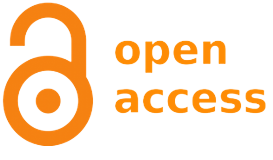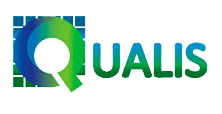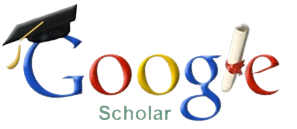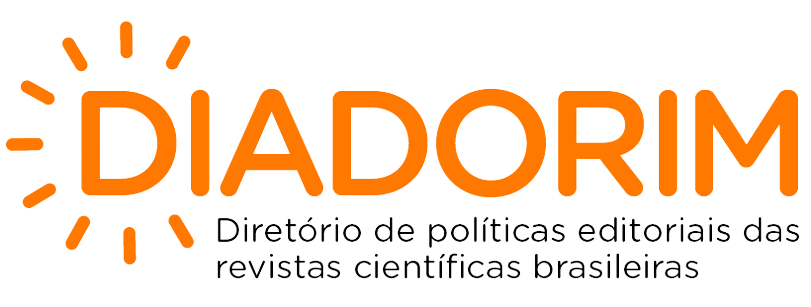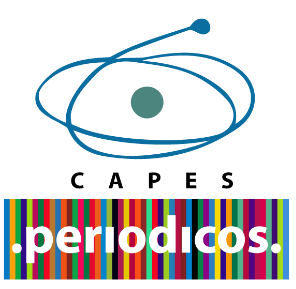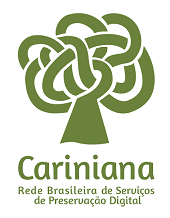As humanidades digitais na perspectiva da emancipação
DOI:
https://doi.org/10.5433/2317-4390.2022v11n3p20Palavras-chave:
Humanidades Digitais, Competências e formação, EmancipaçãoResumo
Objetivo: O objetivo deste artigo é verificar, em conjunto com pesquisadores, as problemáticas e ações relacionadas às humanidades digitais, a saber: como o uso das humanidades digitais pode contribuir para a emancipação dos sujeitos?
Metodologia: Para responder a essa questão, utilizamos a abordagem qualitativa por meio de entrevistas abertas. Utilizamos a amostragem por conveniência, em que o pesquisador selecionou especialistas e membros da população mais acessíveis no momento e que são convidados para a entrevista para discutir e responder o roteiro de pergunta. Foi utilizado o software qualitativo MAXQDA2020 para a codificação e análise das entrevistas.
Resultados: Com base nos diálogos com os especialistas, foi considerado que as humanidades digitais, vistas a partir da emancipação, possuem perspectivas promissoras para os indivíduos e efetivas contribuições para a sociedade. De acordo com as análises qualitativas, as humanidades digitais, em conjunto com as competências adquiridas, podem ajudar a identificar as fakes news, o que possibilita dar subsídios aos indivíduos para fazerem bom uso das tecnologias e do ciberespaço de uma forma empoderada.
Conclusões: No entanto, para realizar esses desafios, faz-se necessária a criação de políticas que englobem todo o projeto de humanidades digitais, investimento em tecnologias e, principalmente, na formação de indivíduos com competências necessárias para usar as redes e tecnologias numa perspectiva crítica, integradora e humanística.
Downloads
Referências
ADORNO, T. W. Educação e emancipação. Rio de Janeiro: Paz e Terra, 1995.
ADORNO, T. W. Educação e Emancipação. São Paulo: Paz e Terra, 2010.
ALVES, D. As Humanidades Digitais como uma comunidade de práticas dentro do formalismo académico: dos exemplos internacionais ao caso português. Ler História, [S. l.], v. 69, p. 91-103, 2016. Disponível em: https://journals.openedition.org/lerhistoria/2496#citedby. Acesso em: 25 jul. 2021.
ARAÚJO, C. A. A. Novos desafios epistemológicos para a ciência da informação. Palabra Clave, La Plata, v. 10, n. 2, p. 1-15, 2021. Disponível em: http://sedici.unlp.edu.ar/bitstream/handle/10915/119516/Documento.pdf-PDFA.pdf?sequence=1&isAllowed=y. Acesso: 29 jul. 2021.
AUSUBEL, D. P. The acquisition and retention of knowledge: a cognitive view. Lisboa: Plátano Edições Técnicas; 2000.
AUSUBEL, D. P. The psychology of meaningful verbal learning. Nova Iorque: Grune & Stratton, 1963.
BARATS, C.; SCHAFER, V.; FICKERS, A. Fading Away... The challenge of sustainability in digital studies. Digital Humanities Quarterly, [S. l.], v. 14, n. 3, p. 1-17, 2020. Disponível em: http://www.digitalhumanities.org/dhq/vol/14/3/000484/000484.html. Acesso em: 29 jul. 2021.
BARNETT, F. M. The Brave Side of Digital Humanities. Differences, [S. l.], v. 25, n. 1, p. 64-78, 2014. Disponível em: https://www.sas.upenn.edu/~cavitch/pdf-library/Barnett_BraveSide.pdf. Acesso em: 24 abr. 2021.
BERRY, D. M.; FAGERJORD, A. Digital Humanities: Knowledge and Critique in a Digital Age. Cambridge: Polity, 2017.
BROWN, J. S.; DUGUID, P. The social life of information. Boston: Harvard Business Review Press, 2000.
CAPURRO, R. Citizenship in the Digital Age. In: SAMEK, Toni; SHULTZ, Lynette. (ed.). Information ethics, globalization and citizenship: essays on ideas to praxis. Jefferson, NC: McFarland, 2017.
CAPURRO, R. Información y acción moral en el contexto de las nuevas tecnologías. In: ENCONTRO INTERNACIONAL DE INFORMAÇÃO, CONHECIMENTO, ÉTICA E AÇÃO, 7., 2011, Marília. Anais [...]. Marília: UNESP, 2011.
CAPURRO, R. Intercultural Information Ethics: Foundations and Applications. Signo pensam, Bogotá, v. 28, n. 55, p. 66-79, 2009. Disponível em: http://www.scielo.org.co/scielo.php?script=sci_arttext&pid=S0120-48232009000200004&lng=en&nrm=iso. Acesso em: 27 jul. 2021.
CAPURRO, R. Nelson Mandela as information ethicist: A dialogue. In: BESTER, C.; BRITZ, J.; CAPURRO, R.; FISCHER, R. (org.). Nelson Mandela: a reader on information ethics. Auckland Park: International Center for Information Ethics, 2021. Disponível em: https://www.i-c-i-e.org/_files/ugd/788aa6_a19c8754f562440c810b1e8dfeb50eba.pdf. Acesso em: 22 fev. 2022.
CASTELLS, M, The Rise of the Network Society. Volume I. The Information Age: Economy, society and culture. Oxford, Blackwell Publishers, 2010.
DACOS, M. Manifesto das Humanidades Digitais. ThatCamp Paris, [S. l.], mar. 2011. Disponível em: https://humanidadesdigitais.org/manifesto-das-humanidades-digitais/. Acesso em: 29 jul. 2021.
DALBELLO, M. A genealogy of digital humanities. Journal of Documentation, [S. l.], v. 67, n. 3, p. 408-506, 2011. Disponível em: https://www.emerald.com/insight/content/doi/10.1108/00220411111124550/full/html. DOI: https://doi.org/10.1108/00220411111124550. Acesso em: 24 abr. 2021.
DRUCKER, J. Sustainability and complexity: Knowledge and authority in the digital humanities. Digital Scholarship in the Humanities, [S. l.], v. 36, n. 2, p. 86-94, 2021. DOI: https://doi.org/10.1093/llc/fqab025. Acesso em: 27 jul. 2021.
FLORIDI, L. The ethics of information. Oxford: Oxford University Press, 2013.
FREIRE, P. Pedagogia da autonomia: saberes necessários à prática educativa. São Paulo: Paz e Terra, 2002.
FREIRE, P. Pedagogia do Oprimido. Porto: Afrontamento, 1975.
FROHMANN, B. A documentação rediviva: prolegômenos a uma (outra) filosofia da informação. Revista Morpheus - Estudos Interdisciplinares em Memória Social, Rio de Janeiro, n. 14, p. 227-249, 2012. Disponível em: https://seer.unirio.br/morpheus/article/view/4828. Acesso em: 27 jul. 2021.
GASKELL, G. Entrevistas individuais e de grupos. In: BAUER, M. W.; GASKELL, G. (org.). Pesquisa qualitativa com texto, imagem, e som: um manual prático. Petrópolis: Vozes, 2014. p. 64-89.
GOLD, M. K. The Digital Humanities Moment. 2012. Disponível em: https://dhdebates.gc.cuny.edu/read/untitled-88c11800-9446-469b-a3be-3fdb36bfbd1e/section/fcd2121c-0507-441b-8a01-dc35b8baeec6. Acesso em: 24 jul. 2021.
GRIMSHAW, M. Towards a manifesto for a critical digital humanities: critiquing the extractive capitalism of digital society. Palgrave Communications, [S. l.], v. 4, n. 21, p. 1-8, 2018. DOI: 10.1057/s41599-018-0075-y. Acesso em: 27 jul. 2021.
GUERREIRO, D. M.; BORBINHA, J. L. Humanidades digitais: novos desafios e oportunidades. Cadernos BAD, [S. l.], n. 1, p. 63-78, 2014. Disponível em: http://hdl.handle.net/20.500.11959/brapci/65352. Acesso em: 29 jul. 2021.
HABERMAS, J. Moral consciousness and communicative action. Cambridge: MIT Press, 1990.
HABERMAS, J. The theory of communicative action: Reason and the rationalization of society. Boston: Beacon Press, 1984. v. 1.
HOCKEY, S. The History of Humanities Computing. In: SCHREIBMAN, S.; SIEMENS, R.; UNSWORTH, J. (Ed.) A Companion to Digital Humanities. Oxford: Blackwell Publishing, 2004.
ILHARCO, F. Filosofia da Informação. Lisboa: Universidade Católica Editora, 2003.
KIRSCHENBAUM, M. G. What is digital humanities and what's it doing in english departments? ADE Bulletin, [S. l.], n. 150, p. 55-61, 2010. Disponível em: https://www.ade.mla.org/content/download/7914/225677. Acesso em: 1 jul. 2021.
LODGE, J. Info-vultures: Automated emancipation or bondage? Facing the ethical challenge. In: BESTER, C.; BRITZ, J.; CAPURRO, R.; FISCHER, R. (org.). Nelson Mandela: a reader on information ethics. Auckland Park: International Center for Information Ethics, 2021. Disponível em: https://www.i-c-i-e.org/_files/ugd/788aa6_a19c8754f562440c810b1e8dfeb50eba.pdf. Acesso em: 22 fev. 2022.
MINAYO, M. C. S. O desafio do conhecimento científico: pesquisa qualitativa em saúde. 2. ed. São Paulo/Rio de Janeiro: Hucitec/Abrasco, 1993.
MINAYO, M. C. S. Pesquisa social: teoria, método e criatividade. Petrópolis: Vozes, 2011.
NOVAK, J. D. Learning, creating, and using knowledge: Concept maps as facilitative tools in schools and corporations. Nova Iorque: Routledge, 1998.
OLIVEIRA, L. F. R.; MARTINS, D. L. O Estado da Arte em Pesquisas sobre Humanidades Digitais no Brasil. PRACS: Revista Eletrônica de Humanidades do Curso de Ciências Sociais da UNIFAP, Macapá, v. 10, n. 1, p. 9-20, jan./jun. 2017. DOI: 10.18468/pracs.2017v10n1.p09-20. Disponível em: https://periodicos.unifap.br/index.php/pracs/article/view/2635/felipev10n1.pdf. Acesso em: 25 jul. 2021.
ORTEGA, N. R. Five central concepts to think of Digital Humanities as a new digital humanism project. Artnodes, [S. l.], n. 22, p. 1-6, 2018. DOI: http://dx.doi.org/10.7238/a.v0i22.3263. Acesso em: 27 jul. 2021.
REICHERT, R. Digital Humanities. Infotheca, [S. l.], v. 15, n. 2, Apr. 2015. Disponível em: http://infoteka.bg.ac.rs/pdf/Eng/2014-2/Eng2014-2INFOTHECA_XV_2_april_22-34.pdf. Acesso em: 27 jul. 2021.
ROWLANDS, M. Towards a Post-Humanist Theory of Value. In: The Environmental Crisis. Londres: Palgrave Macmillan, 2000. p. 139-160.
SAVOLAINEN, R. Everyday information practices: a social phenomenological perspective. Plymouth: Scarecrow, 2008.
SVENSSON, P. Envisioning the digital humanities. Digital Humanities Quarterly, [S. l.], v. 6, n. 1, 2012. Disponível em: http://www.digitalhumanities.org/dhq/vol/6/1/000112/000112.html. Acesso em: 04 jul. 2021.
TUOMINEN, K.; TALJA, S.; SAVOLAINEN, R. The social constructionist viewpoint on information practices. In: FISHER, E.; ERDELEZ S.; MCKECHNIE, L. (Ed.) Theories of information behavior. Medford: Information Today, 2005. p. 328-333.
WILKINSON, M. D. et al. The FAIR Guiding Principles for scientific data management and stewardship. Scientific data, [S. l.], v. 3, n. 1, p. 1-9, 2016. DOI: 10.1038/sdata.2016.18. Disponível em: . Acesso em: 27 jul. 2021.
WRIGHT, K. Personal knowledge management: supporting individual knowledge worker performance. Knowledge management research & practice, [S. l.], v. 3, n. 3, p. 156-165, 2005. DOI: https://doi.org/10.1057/palgrave.kmrp.8500061. Acesso em: 27 jul. 2021.
YOO, Y.; BOLAND JR., R. J.; LYYTINEN, K.; MAJCHRZAK, A. Organizing for innovation in the digitized world. Organization science, [S. l.], v. 23, n. 5, p. 1398-1408, Sep./Oct. 2012. Disponível em: https://www.jstor.org/stable/23252314. Acesso em: 27 jul. 2021.
ZUBOFF, S. In the age of the smart machine: The future of work and power. Nova Iorque: Basic Books, 1988.
Downloads
Publicado
Como Citar
Edição
Seção
Licença
Copyright (c) 2024 Informação@Profissões

Este trabalho está licenciado sob uma licença Creative Commons Attribution 4.0 International License.
A revista se reserva o direito de efetuar, nos originais, alterações de ordem normativa, ortográfica e gramatical, com vistas a manter o padrão culto da língua e a credibilidade do veículo. Respeitará, no entanto, o estilo de escrever dos autores. Alterações, correções ou sugestões de ordem conceitual serão encaminhadas aos autores, quando necessário.
O conteúdo dos textos e a citação e uso de imagens submetidas são de inteira responsabilidade dos autores.
Os trabalhos publicados passam a ser propriedade da revista Informação& Profissões, ficando sua reimpressão total ou parcial sujeita a autorização expressa da revista. Em todas as citações posteriores, deverá ser consignada a fonte original de publicação, no caso a Informação&Profissões.




